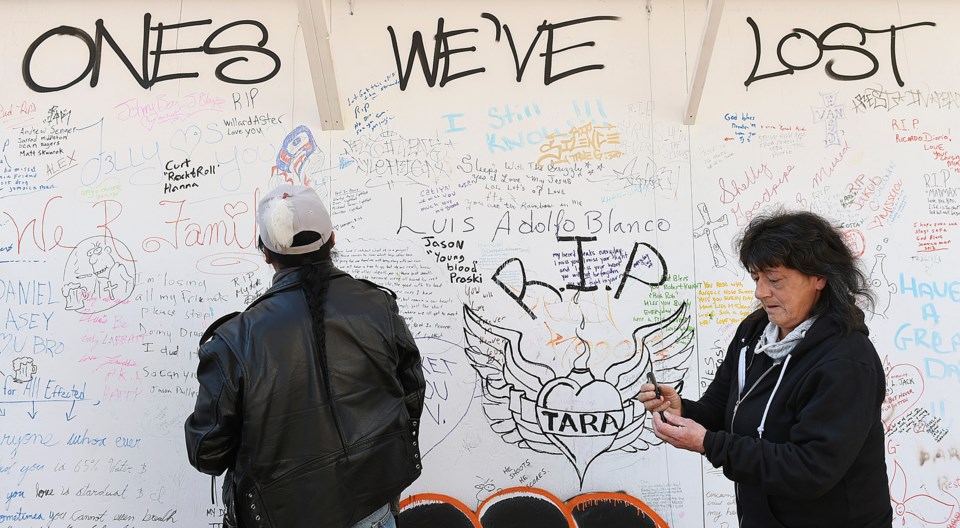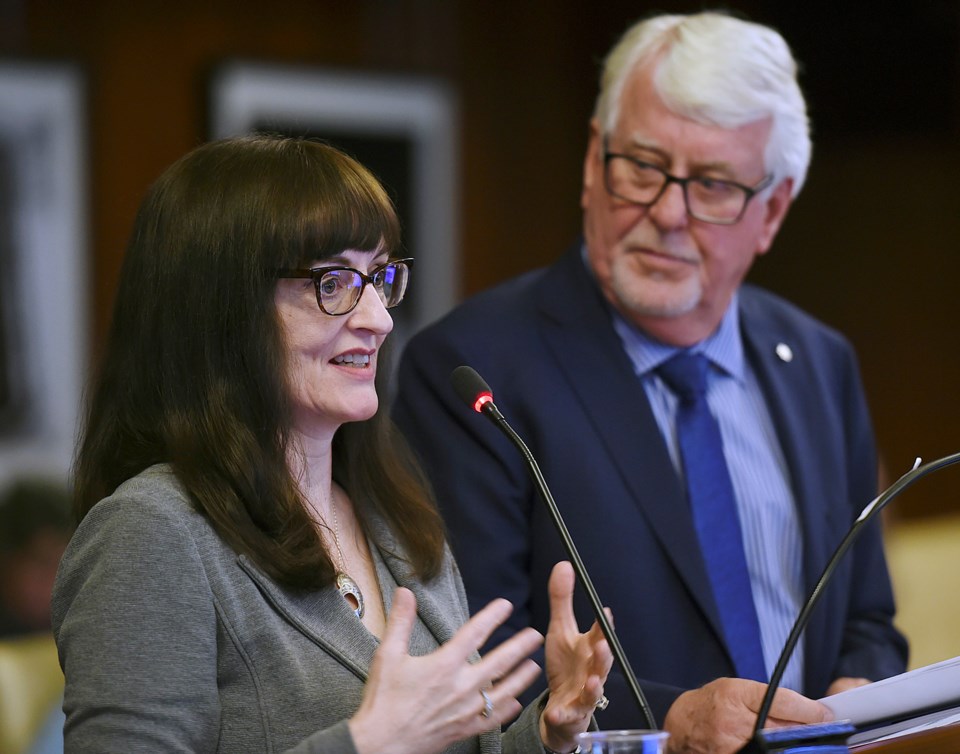The overdose drug death crisis is getting worse in Vancouver despite amplified efforts of governments, health professionals and community volunteers over the last year to reduce the death toll in a city that has been ground zero for the province-wide tragedy.
City council heard Wednesday from provincial health officer Dr. Perry Kendall and Vancouver Coastal Health’s chief medical health officer Dr. Patricia Daly that the number of overdose deaths in Vancouver has reached 110 this year, more than half of the 215 deaths recorded for all of last year.
The sombre news caused Mayor Gregor Robertson to ask for a moment of silence in the council chambers to recognize all the lives lost from overdoses, 60 per cent of which last year were connected to the deadly synthetic opioid fentanyl.
“I feel -- deep down -- incredible frustration and anger,” said the mayor, who directed his comments at the provincial and federal governments for not doing more to reduce deaths, including fast-tracking the opening of supervised injection sites and directing more money at treatment options for drug users.
The new statistics were released almost one year to the date that Kendall declared a public health emergency April 14, 2016, which triggered the provincial government to take the unprecedented step of moving a mobile medical unit into the Downtown Eastside and allowing drug users’ groups and others to open injection rooms in offices and hotels.
“We would have had more deaths if we hadn’t done these things,” said Daly, noting the health authority’s research concluded the death toll would have been 20 per cent higher in the region. “So that’s an important message because people will ask me, ‘You want us to spend millions of dollars, and it doesn’t seem like anything you’ve done has done any good.’”
In addition, clinics such as Connections on Powell Street and the Rapid Access Addiction Clinic at St. Paul’s Hospital, which provide treatment and addictions services, have opened recently and are seeing an uptick in patients seeking therapy.
Daly noted many drug users want treatment options. She pointed out that of the 2,500 people who visited the mobile medical unit near Main and Hastings, that 2,000 sought treatment. The other 500 were treated for overdoses.

So far, the city has spent $2.9 million fighting the crisis, including $1.9 million on an additional medical unit for the fire department. Council heard that firefighters answered 1,850 overdose calls – 1,273 of those in the Downtown Eastside -- between Jan. 1 and April 9.
“There’s no way to describe this other than a disaster,” said Vision Vancouver Coun. Raymond Louie, who acknowledged the work of all involved but concluded there is “no clear plan” that is properly funded.
As they have done throughout the crisis, Daly and Kendall repeated the need for governments to spend money on more treatment and drug therapy options for drug users, including prescriptions to Suboxone and Hydromorphone to stabilize a person’s addiction.
Both doctors renewed their pleas for the decriminalization of all drugs, with Kendall pointing to the example of Portugal, which decriminalized drugs in 2001. He acknowledged such a move would result in “difficult discussions,” but noted law enforcement officials on a provincial task force agreed the solution to reduce overdose deaths is not by arresting drug users. Same goes for treatment as the only solution, he added.
“Although I think there’s a lot of opportunity for treatment, I think we’re unlikely to treat our way out of this,” Kendall said. “So I think it is time for a discussion to look at other alternate regimes that might offer Canada better options than we currently have.”
In the meantime, Kendall said the number of doctors and nurse practitioners qualified to prescribe Suboxone to drug users has increased from 266 last year to more than 800 this year. But Kendall told council that not all doctors are interested in having drug users as patients.
“To be frank, I think because of the stigma and the chaotic lives that many folks have, they’re not the most desirable clientele,” he said. “Many of [the doctors] don’t feel comfortable or capable of taking on people with chronic complex conditions. So it’s going to take time to build that up, unfortunately.”



